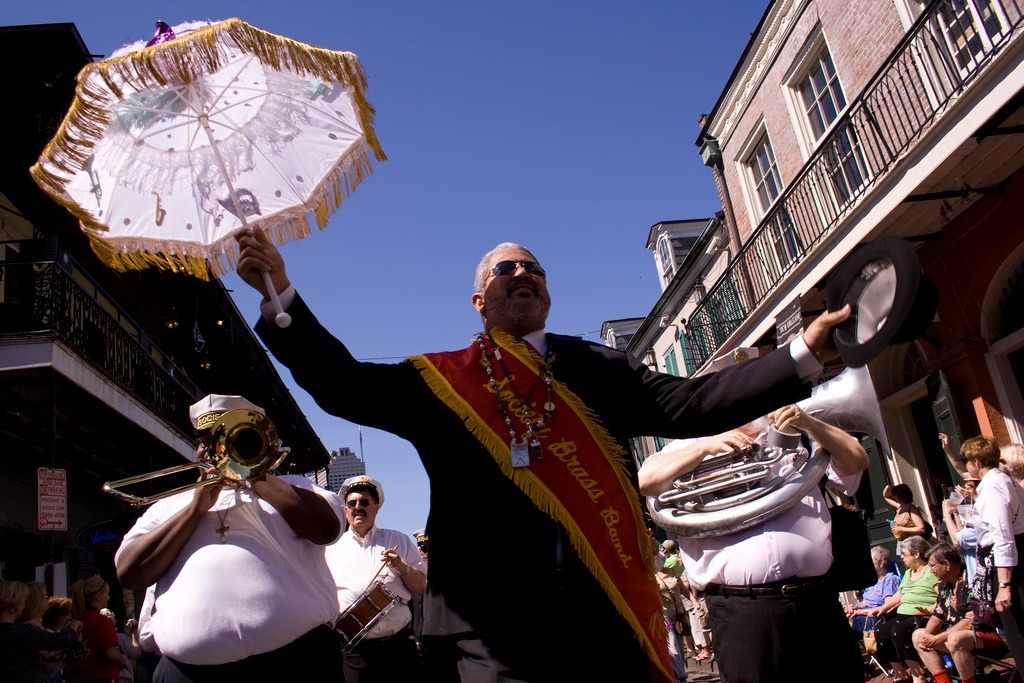
Next week, President Obama will visit New Orleans on the tenth anniversary of Hurricane Katrina. Based on a report in the New York Times, the president’s agenda appears to emphasize climate change.
It is all but obvious that the Gulf Coast is a powerful site for a statement on climate change, but there is another agenda going on that the president may be called upon to address, whether he wants to or not. Mayor Mitch Landrieu, with support from the Rockefeller Foundation and the Rockefeller-initiated 100 Resilient Cities program, has launched a project called Katrina 10 to tout New Orleans as “America’s best comeback story.”
With no hint of modesty, Landrieu explains on the Katrina 10 website that “New Orleans has become this nation’s—and in many instances, this world’s—most immediate laboratory for innovation and change. Now, the opportunity is to position New Orleans as a global leader on resilience.”
The Katrina 10 website lists a variety of categories of “recovery data,” explaining what Mayor Landrieu and his partners see as some of the post-Katrina achievements, including:
- Advances in civic engagement
- Revival and expansion of the tourist industry
- The city’s and the parish’s progress on implementing the federal consent decree on policing
- Diversification of the economy though developments in digital media, bioscience, and environmental-related industries
- The charter school takeover of New Orleans public schools
- Housing assistance provided to households to rebuild housing damaged in the hurricane and to demolish and redevelop public housing
- The repopulation and revival of several hurricane-damaged neighborhoods
Among the Katrina 10 “partners” are several nonprofits, including the Greater New Orleans Foundation, the Foundation for Louisiana, the Urban League of Greater New Orleans, the Greater New Orleans Housing Alliance, Second Harvest Food Bank, the United Way of Southeast Louisiana, the W.K. Kellogg Foundation, and the Center for Community Progress.
While there is no way to determine a priori whether all of these partners see the city’s multi-faceted progress exactly as portrayed it’s by Katrina 10, there are other nonprofits are somewhat less enamored with the Katrina 10 narrative. In a press call on August 19th, the Advancement Project, a major national civil rights advocacy organization, announced the launch of a website to counter the Katrina 10 promotional information: Katrina Truth. In contrast to Katrina 10’s tagline of “Resilient New Orleans,” Katrina Truth’s is “Resistant New Orleans.”

The reason for the website, according to Advancement Project executive director Judith Browne Dianis, is that the New Orleans recovery has been uneven, the black community has been left behind, and the city is trying to sell a story that doesn’t fully describe what has happened in the wake of the Hurricane.
Sign up for our free newsletters
Subscribe to NPQ's newsletters to have our top stories delivered directly to your inbox.
By signing up, you agree to our privacy policy and terms of use, and to receive messages from NPQ and our partners.
Using similar images and fonts to the Katrina 10 website, KatrinaTruth.org addresses parts of the recovery story that are sharply less positive than the city’s narrative:
- A significant drop in public housing units and public housing tenants, who have been priced out of the ability to return to their now redeveloping or gentrifying neighborhoods
- A view of New Orleans’ charter school experiment as a privatization and “dismantling” of the public school system as well as a continuation and expansion of the “school-to-prison pipeline”
- 52 percent unemployment rate for black men in New Orleans and widening income gaps between black and white households in the city
- A different story than the city’s about the federal consent decree on policing, which Katrina Truth says Mayor Landrieu tried to void
- A sharp reduction in health services to the poor due to the shuttering of Charity Hospital
There’s no overlap in the list of nonprofits partnering with the Advancement Project on Katrina Truth and those on the Katrina 10 celebration. The Advancement Project’s primary partner on the website is Families and Friends of Louisiana’s Incarcerated Children (FFLIC), with other allies including Southeast Louisiana Legal Services, the Gulf Coast Center for Law & Policy, the Coalition of Community Schools, the Greater New Orleans Fair Housing Center, and SEIU Local 21.
Despite similar structure and fonts, the Katrina 10 and Katrina Truth websites depict very different narratives of the recovery of New Orleans, particularly regarding the effects of the recovery on the city’s black population. In the press call, Thomas Mariadason, a staff attorney with the Advancement Project, noted that the Katrina Truth project—in fact, the entire discussion of what has happened in New Orleans ten years after Katrina—has as its backdrop the nation’s #BlackLivesMatter movement. Assessment of what the recovery from Katrina has yielded and the populations that have or haven’t benefited is, as Mariadason observes, a Black Lives Matter issue.
With backing from the Rockefeller and Kellogg Foundations along with the New Orleans region’s smaller foundations, plus the apparatus of the public sector, the Katrina 10 narrative will be extensively pitched to a variety of audiences. Katrina Truth doesn’t have that kind of financial muscle to present its alternative narrative of the recovery of New Orleans and the larger Gulf Coast. When President Obama shows up to celebrate the city’s accomplishments and call for action on climate change, will he also note the persistence and deepening of racial inequities in the recovery, and call for action to reduce those gaps as well?—Rick Cohen












